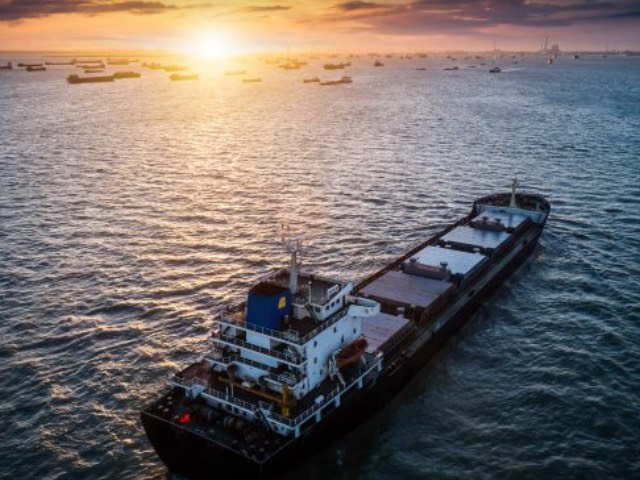The long-awaited IMO 2020 regulations to limit sulphur content in marine fuels kicked in on January 1st after more than a decade in the making. Although it is still early days, V.Group’s Global Head of Technical for Ship Management, John Kerr, discusses how V.Group has adapted to the changes brought about by the Act.
It is now three months since the mandatory compliance of IMO 2020 and the extent to which operators are coping with the regulations is intrinsically linked to the preparation carried out prior to January 1st. Extensive preparations had been underway at V.Group for the previous 18 months, and this has stood us in great stead to minimise disruption for our crews, meet requirements and handle the challenges that adherence has presented. My technical team at V.Group who are responsible for ensuring consistency across the V.Group management offices in working closely with the management office Fleet Cells have ensured that everyone is fully prepared for this new legislation and the technical challenges it presents.
Specialist training programmes
In the run up to implementation, Marlins, V.Group’s specialist in-house training provider, in close collaboration with the technical team developed a comprehensive e-learning program for our shore and sea staff colleagues to ensure that everyone understood the aims of IMO 2020 and what it would mean.
Ship Specific Implementation Plans were developed and written, preparing the vessel and her crew for the use of compliant fuels, and I’m proud that 100% of vessels under V.Group management had a fully developed and operational SIP in place prior to the legislative deadline.
Policing and enforcing the regulations
Three months in, there remain questions around how IMO 2020 will be policed and enforced. From March, port state control was given the ability to prosecute for having non-compliant fuel onboard in the territorial waters. However, the global pandemic has presented its own set of challenges for inspectors taking samples from vessels.
It was recently reported by Reuters that the UK had suspended checks on ships for compliance as part of wider measures to reduce the impact of the coronavirus and limit the potential for cross contamination. It must be stressed that this is not an indication that the regulations are not being enforced. The IMO is clear that non-compliance is not an option. There are no exemptions and there will be far reaching consequences for those that breach the rules.
Implications of non-compliance
As well as facing fines and delays being held in port, not to mention the reputational damage shipowners will suffer, there are also implications for the insurance of the vessel.
TradeWinds recently reported an alleged breach of the IMO’s ban on carrying high sulphur fuel oil (HFSO). The country’s Federal Transport Authority (FTA) for land and maritime said the vessel in question would be banned from its ports and waters for a year and the vessel’s master forbidden from entering the country on another ship, as a result of the breach. It is understood that the Owner is disputing the alleged breach and that the HSFO was being carried in a sealed tank. Whatever the outcome of this case, it highlights the possible repercussions.
IMO Compliant Marine Fuel
It was feared that availability of IMO Compliant Marine fuel would be a challenge. As we head into April, there are signs that IMO compliant fuel is becoming more available globally and the number of FONAR (Fuel Oil Non-Availability Reports) filed has decreased dramatically – 41 were submitted to the IMO in January and this dropped to just six in February. At V.Group we have found there to be no reported issues in securing compliant fuel.
A challenge that remains, where the dilution process is required to reach the 0.5% sulphur cap limit. Using cutters and blending components to reach 0.5% does lead to wide variations in viscosity which is a major challenge for the engineers on board in ensuring that the fuel is properly treated and prepared to meet the engine manufacturer’s specification requirements.The new fuel does not have a detailed ISO specification, and this is not likely to be introduced in the near future, 2021 to 2023 being muted. Even within the same port, we are finding little consistency in the bunkers being supplied.
Behind the scenes preparation
A vast amount of work took place behind the scenes at V.Group to ensure we were fully prepared for implementation of the regulations. Three months in, that hard work is paying off. The quality of fuels available and the variability in terms of fuel composition will continue to be an industry wide challenge until an agreed standard specification is introduced but so far, with the hard work, vigilance and close collaboration with our colleagues and customers, V.Group has adjusted well to the new legislative change.
Source: V.Group









































